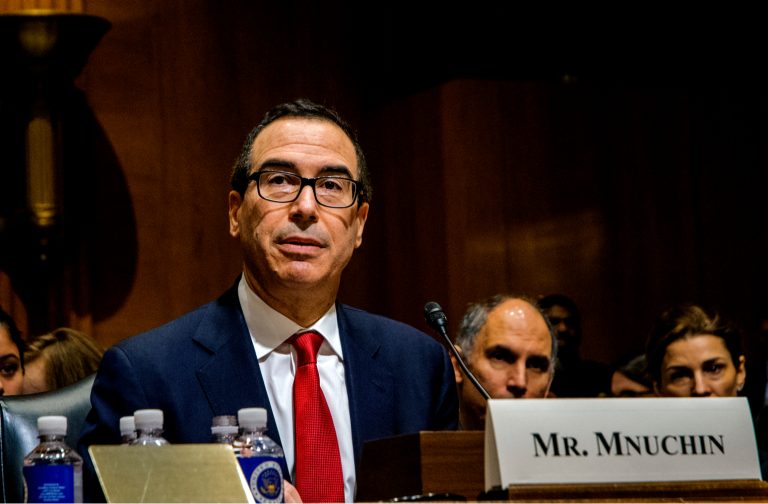
2021-9-3 04:00 |
The basic supply and demand dynamics of the bitcoin monetary network mean that it serves as a solution for ongoing monetary inflation.
The below is from the latest monthly report by the Deep Dive, Bitcoin Magazine's premium markets newsletter. To be among the first to receive these insights and other on-chain bitcoin market analysis straight to your inbox, subscribe now.
An appreciating stock market is now a matter of national security in the United States. This is a very little acknowledged reality of the current economic system, but it is the truth.
As a result of the Bretton Woods Agreement that established the U.S. dollar as the world reserve currency back in 1944, as well as the Nixon Shock in 1971 which introduced the global economy to free-float fiat currencies, the United States is in quite the precarious position.
SourceBecause of the Triffin Dilemma (covered briefly in The Daily Dive #041), the United States has served as the rare case study of a twin deficit nation (both a balance of trade deficit and a fiscal deficit).
Source: YardeniEconomist Robert Triffin outlined the reasons for this back in 1960,
“If the United States stopped running balance of payments deficits, the international community would lose its largest source of additions to reserves. The resulting shortage of liquidity could pull the world economy into a contractionary spiral, leading to instability.
“If U.S. deficits continued, a steady stream of dollars would continue to fuel world economic growth. However, excessive U.S. deficits (dollar glut) would erode confidence in the value of the U.S. dollar. Without confidence in the dollar, it would no longer be accepted as the world's reserve currency. The fixed exchange rate system could break down, leading to instability.” - The International Monetary Fund
Source: KnoemaThe United States in just two decades has gone from a global leader in trade to being completely overtaken by rising nation-state superpower China. As it turns out, Triffin’s worries have turned out to be warranted, and the U.S. finds itself with two distinct paths:
Option 1: Reverse course and “defend the dollar” by having the Federal Reserve raise interest rates and curtail asset purchases, thus spiraling the global economy into an unprecedented depression in the process, while driving an already-polarized society further apart as unemployment skyrockets, asset values plummet, and the real costs of debt explode.
Or
Option 2: Continue the devaluation of the dollar while equities, real estate, and other asset classes continue to melt up in nominal terms, as the U.S. attempts to onshore the manufacturing that left its borders over the last two decades, all while keeping the social unrest at a minimum.
Source: YardeniIt is no mistake that the market continues to melt upwards with minimal volatility, but rather, this is completely by design. Market participants know that the talking heads at the Federal Reserve and in political power do not have any choice but to devalue the currency.
Source: Holger ZschaepitzAs former credit market trader Greg Foss likes to say:
“In a debt/GDP spiral, the fiat currency is the error term. That is pure mathematics. It is a spiral to which there is no mathematical escape.”
This is not a new phenomenon, and in fact debt cycles similar to what is unfolding today — not only in the U.S. but across the globe — have happened many times before (just not at this scale in a technologically-interconnected world).
All debt crises examined throughout history have ended in a similar fashion:
“Printing money/debt monetization and government guarantees are inevitable in depressions in which interest rate cuts won’t work, though these tools are of little value in countries that are constrained from printing or don’t have assets to back printing up and can’t easily negotiate the redistributions of the debt burdens. All of the deleveragings that we have studied (which is most of those that occurred over the past hundred years) eventually led to big waves of money creation, fiscal deficits, and currency devaluations (against gold, commodities, and stocks).” - Ray Dalio, "Principles For Navigating Big Debt Crises"
Our proposed solution to this problem is clear: bitcoin. The reasons that we stressed basic supply and demand dynamics of the bitcoin monetary network at the beginning of this report is the reason that it serves to be the solution for the great monetary inflation.
“Investing during a hyperinflation has a few basic principles: get short the currency, do whatever you can to get your money out of the country, buy commodities, and invest in commodity industries (like gold, coal, and metals). Buying equities is a mixed bag: investing in the stock market becomes a losing proposition as inflation transitions to hyperinflation.
“Instead of there being a high correlation between the exchange rate and the price of shares, there is an increasing divergence between share prices and the exchange rate. So, during this time gold becomes the preferred asset to hold, shares are a disaster even though they rise in local currency, and bonds are wiped out.” - Ray Dalio, "Principles For Navigating Big Debt Crises"
The solution is simple:
Get your money out of the country, and store it in the immutable Bitcoin monetary network. Short the currency (i.e. borrow dollars depending on duration, collateral, and interest rate), and acquire hard assets with a production cost.The reason gold was always the preferred asset to hold during debt crises is not because of the shiny metallic nature of the metal, or because of its industrial use cases, but rather the unforgeable costliness of the asset. A marginal unit of gold was/is harder to produce relative to the outstanding supply than any other fungible commodity.
With bitcoin, we have a monetary asset with 24/7/365 liquidity in every jurisdiction and market on the planet, with a hard-capped supply, with a direct economic incentive to sell any/all excess energy to the network, strengthening it in the process while raising the marginal unit production cost (because of the difficulty adjustment, as covered above).
Bitcoin is not just an asset one should hold during times of unprecedented economic turmoil.
Bitcoin is unequivocally the most certain asset on the planet, and unlike gold during debt crises of the past, bitcoin is in the process of monetizing today, leading us to believe that 10,000% upside is not only possible, but probable over the coming decade.
origin »Bitcoin (BTC) íà Currencies.ru
|
|





















